Number Recognition Normal Word Problems Worksheets for Ages 4-7
6 filtered results
-
From - To
Empower young learners ages 4-7 with our Number Recognition Normal Word Problems Worksheets. Designed to develop core math skills, these engaging, colorful worksheets make learning fun and interactive. Children will improve their number recognition, problem-solving abilities, and foundational math understanding through real-world scenarios. Perfect for early grade educators and parents, our meticulously crafted exercises provide a step-by-step approach, ensuring students build confidence as they progress. Download printable worksheets today to set your child on a path to math success while enjoying the journey. Visit our page for free resources and enhance your child’s learning experience.
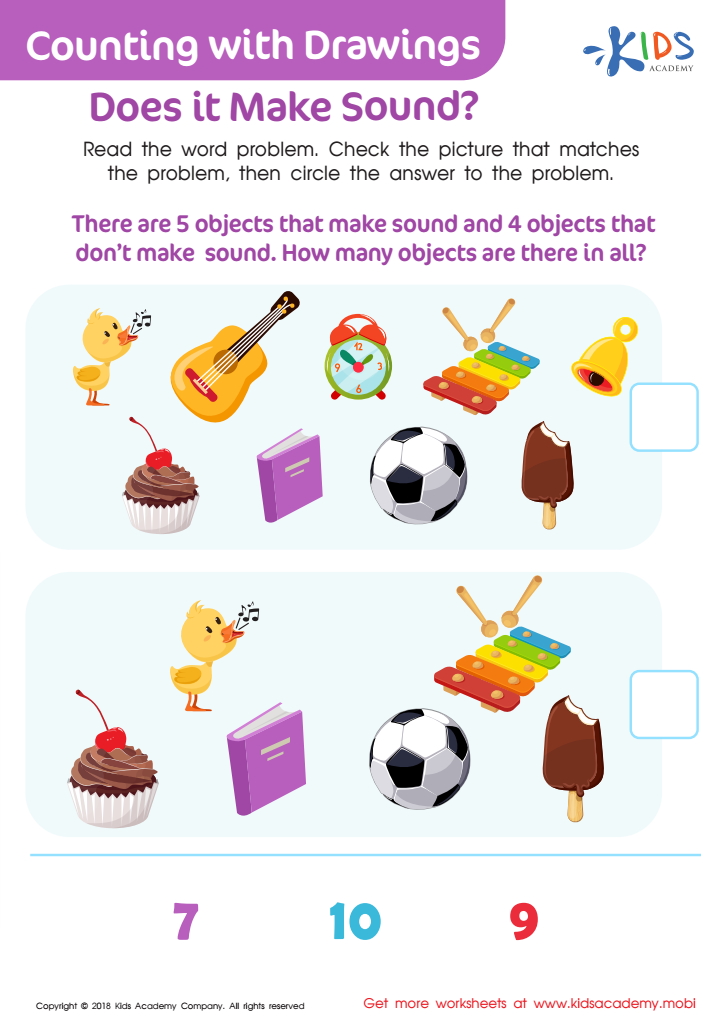

Counting With Drawings. Does It Make Sound? Worksheet
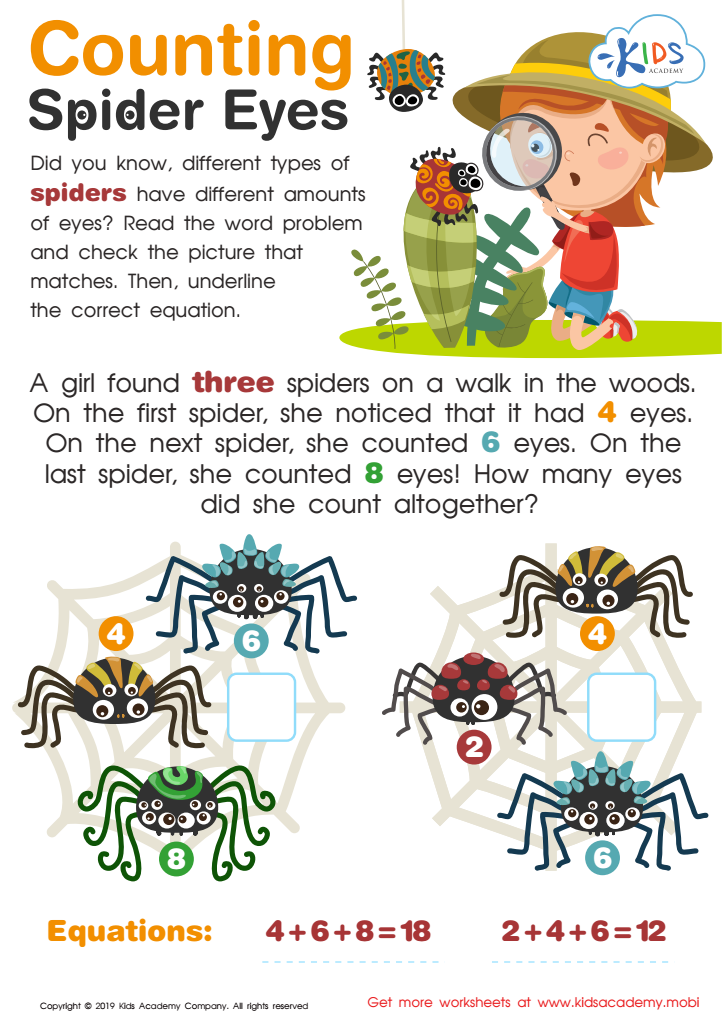

Counting Spider Eyes Worksheet
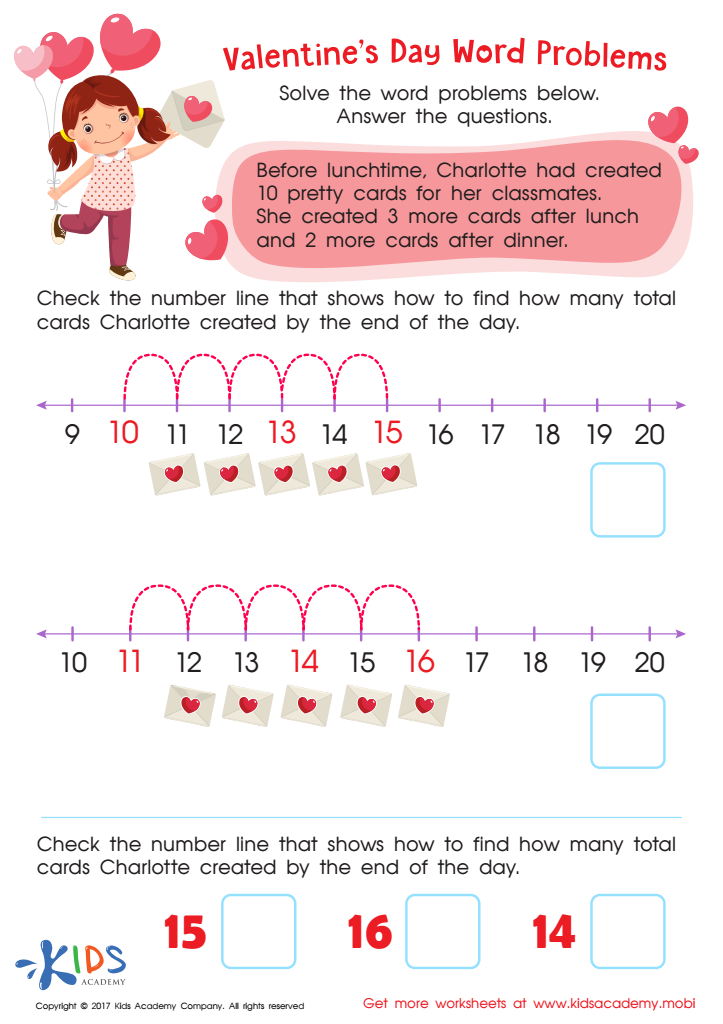

Valentines Day Word Problem Worksheet
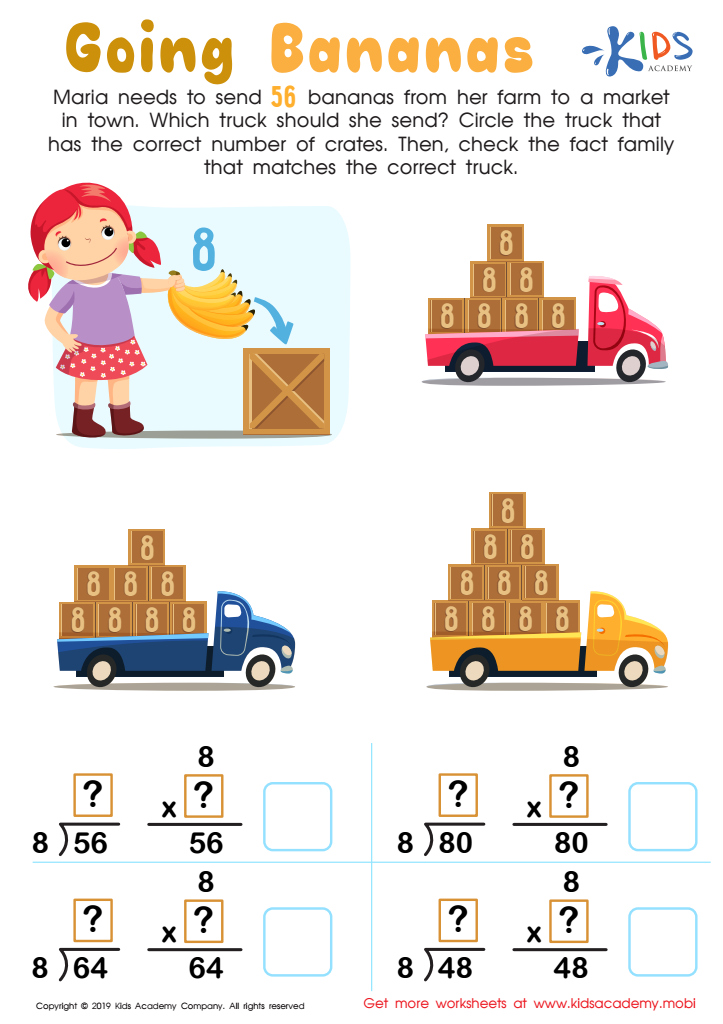

Going Bananas Worksheet
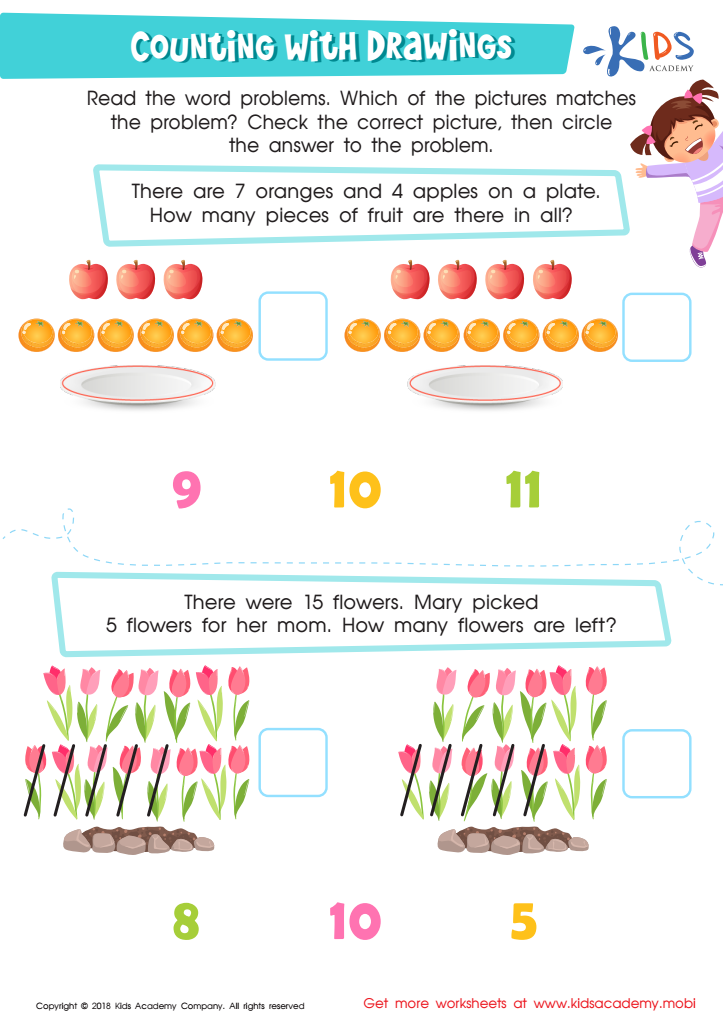

Counting with Drawings: Fruits & Chocolates Worksheet
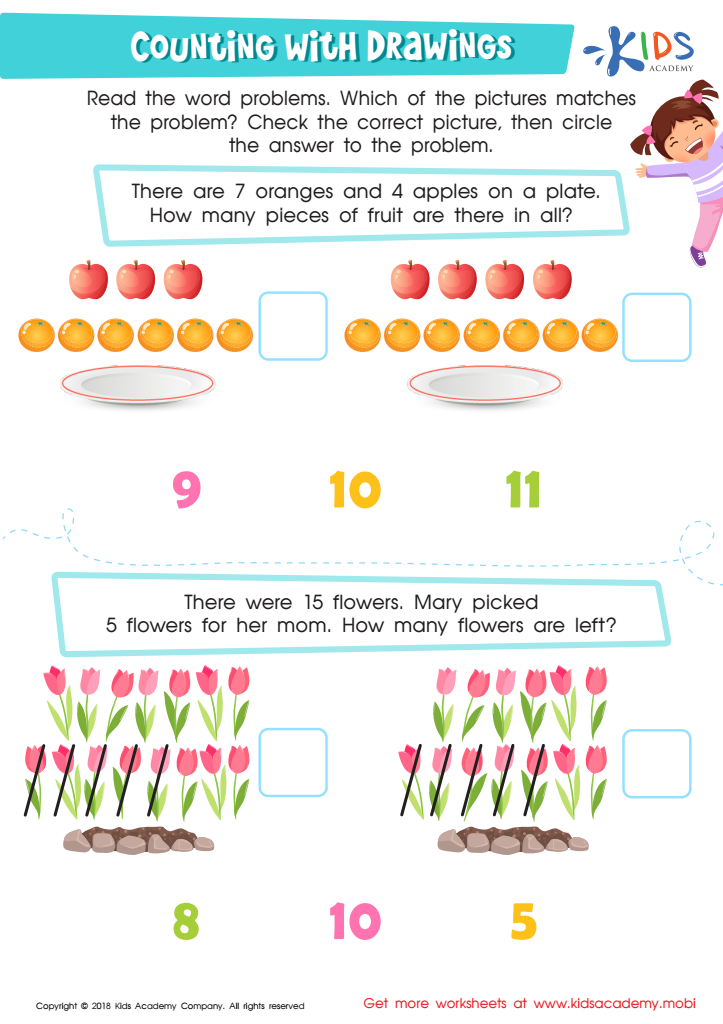

Counting with Drawings:Fruits & Flowers Worksheet
Parents and teachers should prioritize number recognition and word problem skills for children ages 4-7 because these foundational abilities are critical for their overall cognitive development and future academic success. Understanding numbers is not just a basic math skill; it enhances logical thinking, problem-solving, and the ability to understand and interact with the world quantitatively.
Number recognition helps young learners grasp the concept of quantity, positioning, and relationships between numbers, which are essential for more complex mathematical operations later on. Proficiency in this area can build a strong sense of confidence and competence in math and sets the stage for a positive attitude towards learning.
Word problems, on the other hand, integrate real-world situations with mathematical concepts, aiding in the development of language skills and critical thinking. When children engage with word problems, they learn to translate narrative descriptions into mathematical equations, thus strengthening their comprehension skills and their ability to connect abstract concepts to real-life situations.
By encouraging early number recognition and problem-solving through word problems, parents and teachers equip children with essential skills that go beyond math, fostering an all-around intellectual growth, which includes literacy skills, logical reasoning, and the ability to approach complex tasks with analytical thinking. These early educational interventions will serve as the building blocks for more advanced learning and everyday decision-making.
 Assign to My Students
Assign to My Students
















